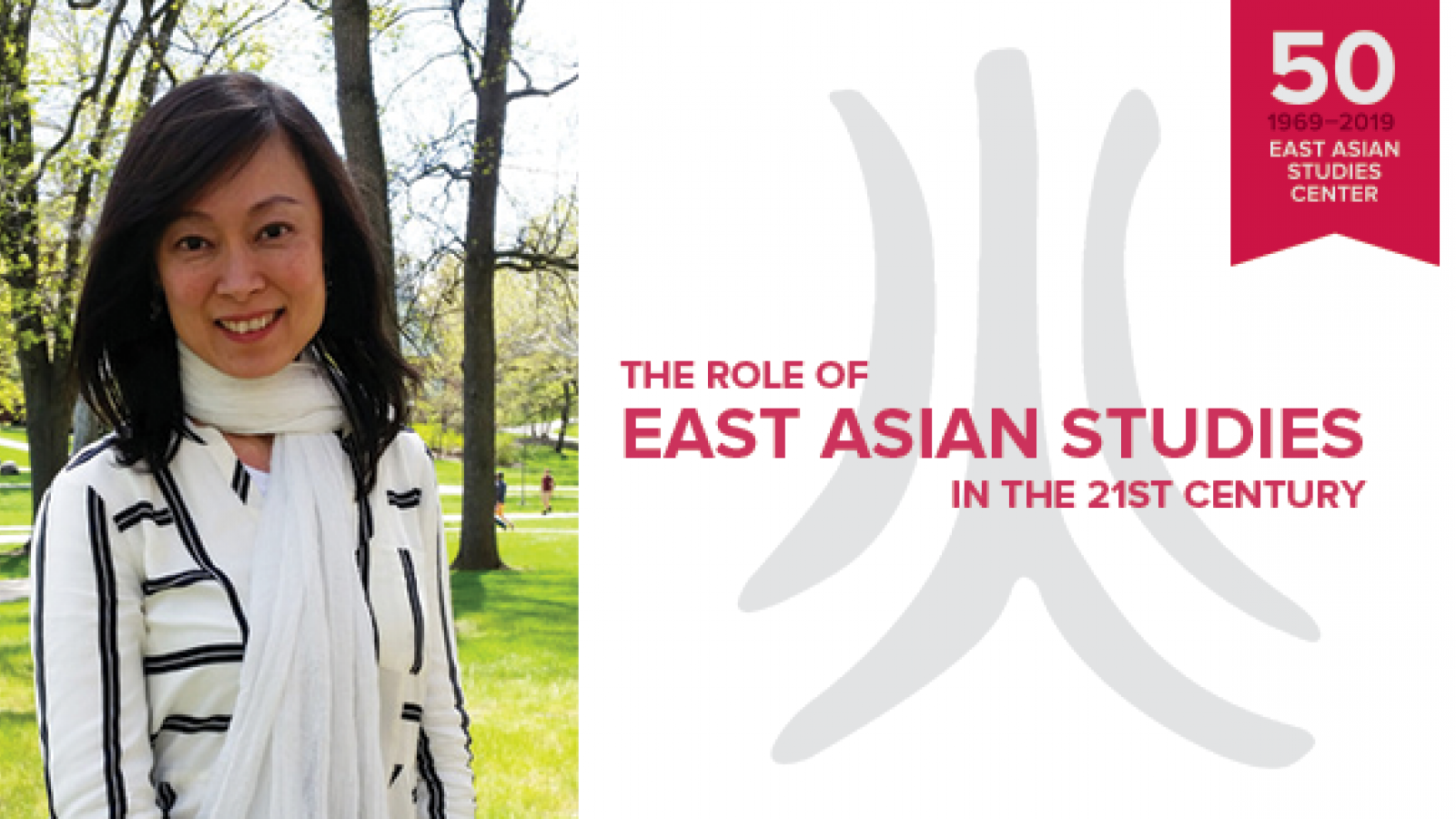CANCELLED EASC Lecture: Meow Hui Goh, "Debunking Ir/relevance: Story-telling Early Medieval Chinese Literature in the 21st Century"
The East Asian Studies Center 50th Anniversary Conference presents:
Meow Hui Goh
The Ohio State University
**THIS EVENT HAS BEEN CANCELLED**
Title: Debunking Ir/relevance: Story-telling Early Medieval Chinese Literature in the 21st Century
Time: 3:50-4:50 PM
Abstract: We have entered into a new age of storytelling: Christine Blasey Ford bravely appeared before the congress in an open hearing to tell her #metoo story; The New York Times Magazine launched a project to tell the full and truthful story of slavery and racism; Facebook’s Help Center offers ten tips for spotting false news stories. Our current explosion of stories, whether the previously hidden and suppressed, the continuously revised and contested, or the newly fabricated and packaged, reaffirms narrative as a fundamental human need and reality. In Roland Barthes’ words, narrative “is simply there like life itself…international, transhistorical, transcultural” (Barthes, 1977). If so, narrative is an antidote to (presumptive) irrelevance and (misperceived) narrowness. If “the humanities are in crisis!” became a story not only because of enrollment numbers and departments’ sizes but also because it has been told and told as such repeatedly, then the counter-story needs to be told and told with all the skill sets and the full gusto of the humanities. This counter-storytelling is already taking place, often in creative ways, in classrooms, blogs, board meetings, op-eds, academic conferences, printed books, and more venues. Against the larger context of this new age of storytelling, I will speak on my own narrativization of early medieval Chinese literature, using my current book project, “The Double Life of Chaos: Living Memory and Literature in Early Medieval China, 180s–300s,” as an example. I propose deep storytelling that takes emotion, memory, imagination and other mental or affective experiences as the central events of history. From this perspective, narrative, being allegorical and multilayered, is a particularly effective interpretative tool, allowing for meanings to cross time and space, condensing, permeating, and overflowing.
Bio: Meow Hui Goh specializes in the literature, literary history, and cultural history of medieval China. She has published on prosody and poetics, memory and literature, the propagandistic function of literature, and other topics. Her current book project, The Double Life of Chaos: Living Memory and Literature in Early Medieval China, 180s–300s, traces different threads in the literary remembrances of Han dynasty’s collapse in its immediate aftermath. She is concurrently working on a longer-term project, “Fake News, Genuine Words: Literature of Wei 僞in Chinese Manuscript and Print Cultures,” which interrogates issues of media, reality-making, and authenticity through works lurking at the margins of Chinese literature. She regularly teaches premodern Chinese literature, bibliography and research methodology, and Classical Chinese.
Free and Open to the Public
This event is sponsored in part by a U.S. Department of Education Title VI grant to The Ohio State University East Asian Studies Center. Additional sponsors include: East Asian Studies Center, Institute for Chinese Studies, Institute for Japanese Studies, Institute for Japanese Studies, Department of East Asian Languages and Literatures, Department of History, Office of International Affairs.

